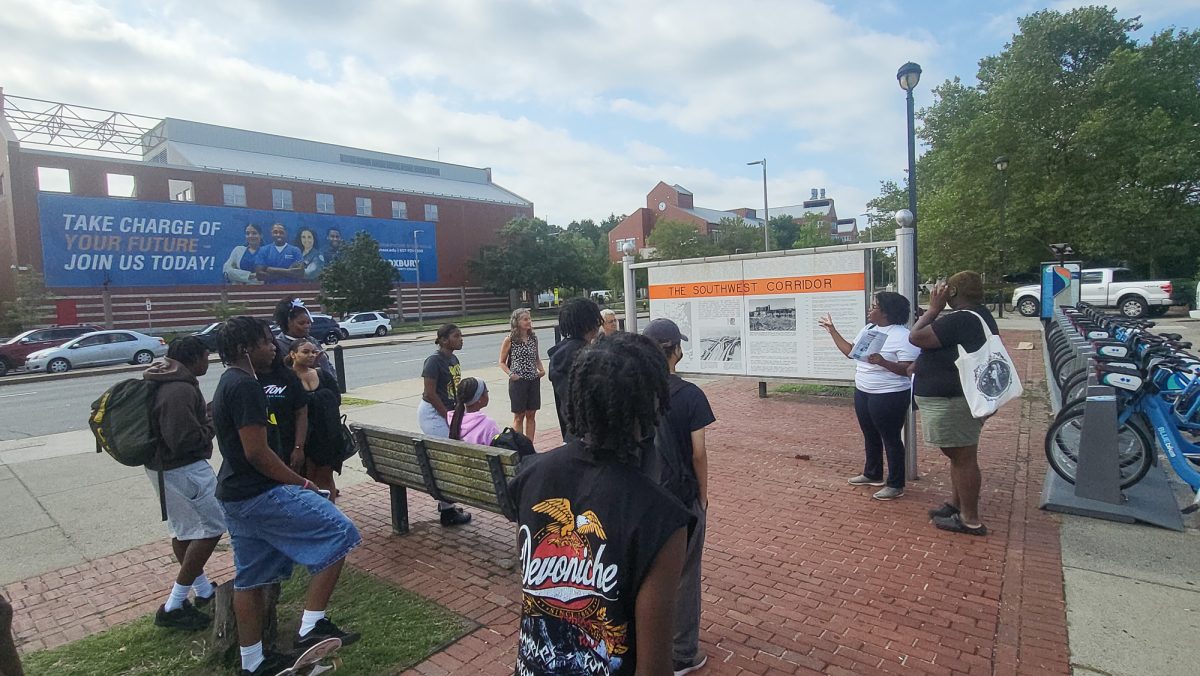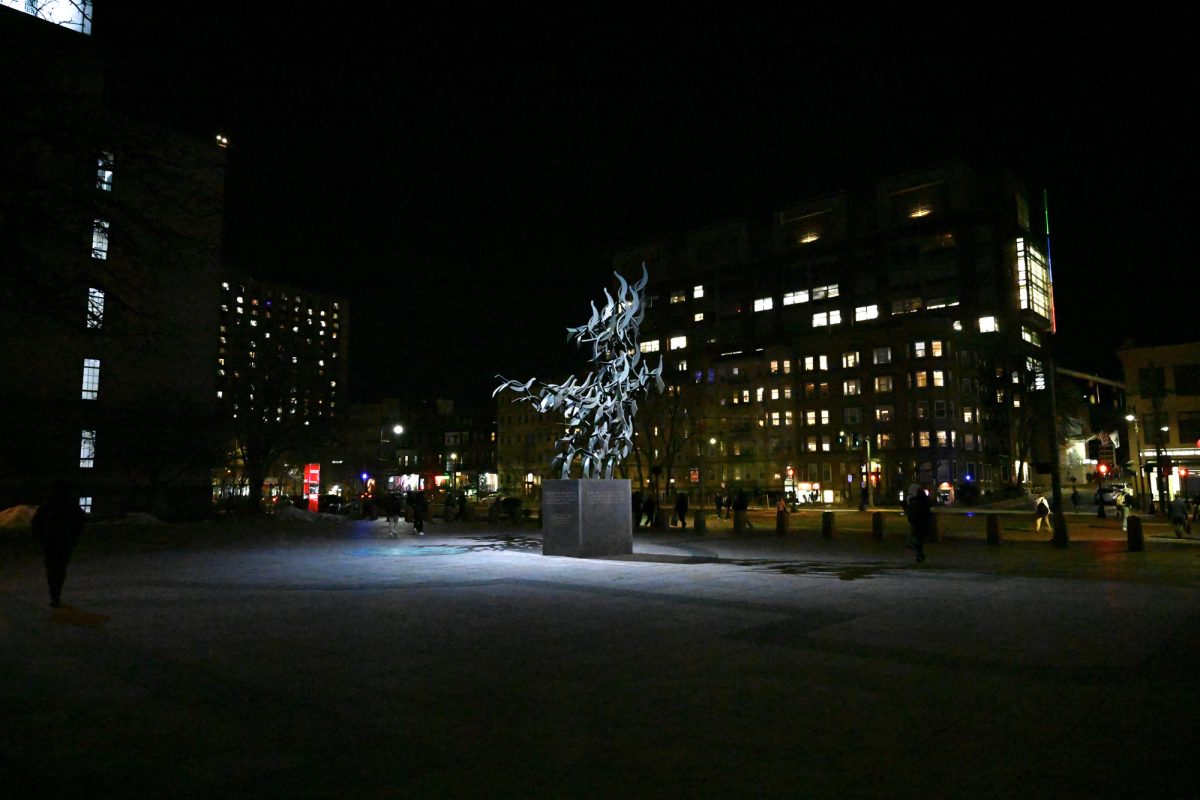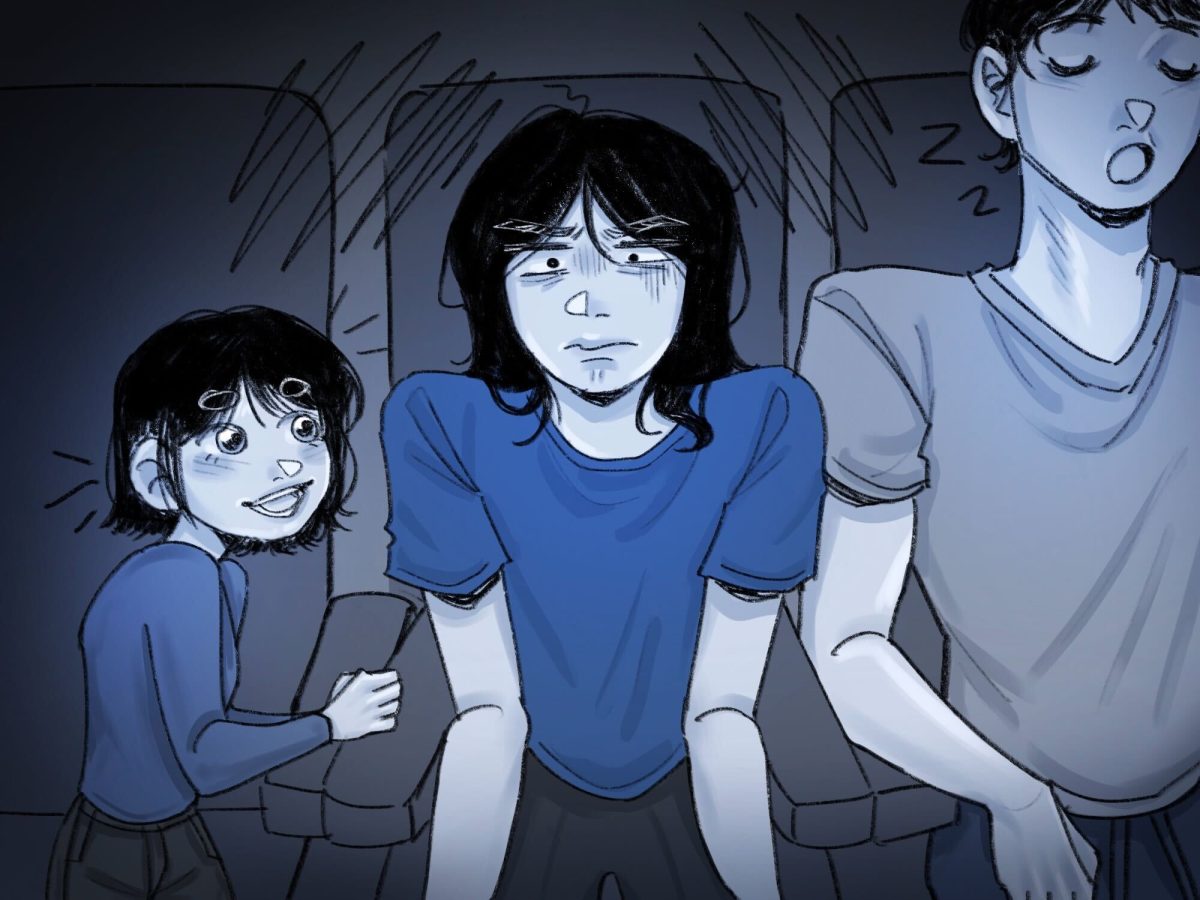Black Moth Super Rainbow performed at the Paradise Rock Club last Monday to a mellow, jovial packed house. The band’s mastermind, Thomas Fec, wore a heavy jacket and a hat, though I cannot imagine it was chilly on the stage with all the lights, however blue they were. He was concealed behind the case of his vocoder synthesizer. When I got a chance to talk to him Thursday, he mentioned how much he did not like performing. The band definitely was not “performing” in the sense that they were animated or doing acrobatics for the audience — they just played their music as the people they are, almost indifferently to the audience.
The large projection of images behind the band moved slightly and peculiarly, setting a mood of contrast to the electronic and distant tones of the music. They juxtaposed natural, willowy scenes of nature with pulsing, refracted and repetitiously dreamy music. When a forest and a road unfolded behind them, it was as if they were floating off into the scene, and the lights brought us along with them. I did not realize at first that the images were actually moving, that the leaves were blowing in the breeze. Soon the woods were replaced by smoke stacks, and later a graveyard. A mysterious blonde figure sat in the graveyard, peering onto the stage behind the band, as if listening along with us. Then the figure stood up and left the frame.
Regardless of Fec’s claims of not having an ulterior message behind his work, the gap between the dissociative and technological forms of their music and the natural scenes they chose to accompany it cannot go unnoticed. He wants his audience to interpret the music as a complete individual, just as he performs it. I can’t help but wonder whether he believes we are floating away from nature, or if synthesized, technological melodies are somehow bringing us closer to the primal threads within it.
The great thing about this breed of electronic music is that there are so many layers of understanding. There is the initially physical feeling that the beats and sounds evoke, but you have to strain a bit to understand Fec’s lyrics. At least live, I found it easier to slip only into the more base tones and sway along, rather than attempt to distinguish the meanings of the songs.
In their new album, Cobra Juicy, the most appealing track to me is “Windshield Smasher,” which the band played as one of their encore songs. It has been stuck in my head for days (“It goes on and on and on and on”). I prefer the recorded version to the one I heard live, which I felt lacked some of the violent and powerful energy within the song, since the band’s stage presence is so acute and motionless.
The video opens with a decidedly “hip” and modern couple in their car, screaming at one another about the GPS. Fec’s lyrics “Show me the way you make my dreamin’ okay. You love my hair because it grows every day,” drift in to the pulsing, intense rhythms, as scary hoodlums come to beat up the couple’s car. The hoodlums are wearing masks of the BMSR orange logo, presumably designed by Fec. The huge teeth grin hauntingly at the couple as they forcibly brush their teeth, feed them birthday cake and shave off their hair. How this video is not critical of American culture, I cannot fathom.
By not explaining their actions and choices, BMSR absolutely leaves the perception of their music up for complete interpretation. Their mellow and expressionless performance live also seems to address the truth of the human mind — we are vast thinkers and feelers even when we are silent, but time will go on and on in complete indifference to us.























































































































